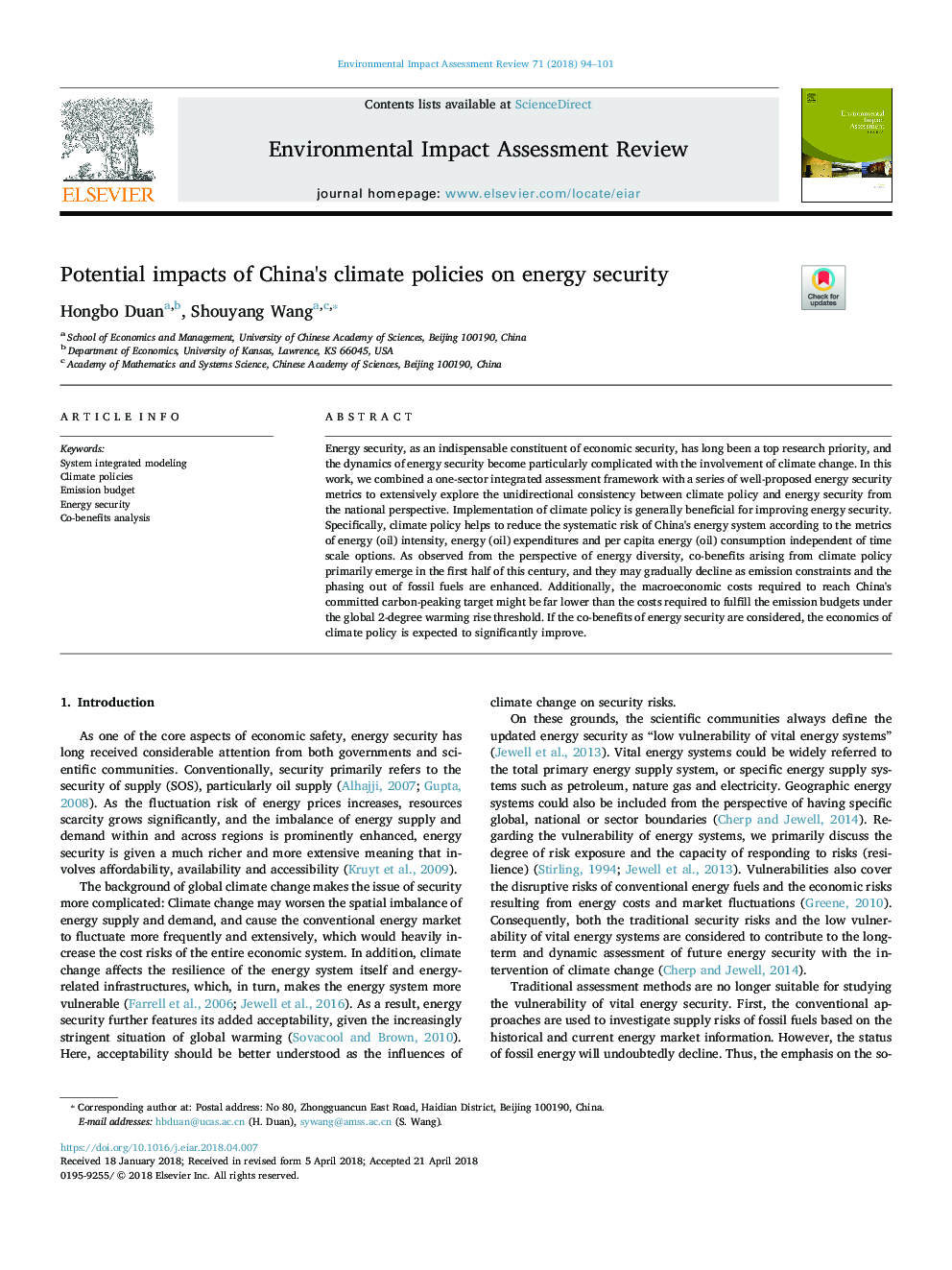| Article ID | Journal | Published Year | Pages | File Type |
|---|---|---|---|---|
| 7464830 | Environmental Impact Assessment Review | 2018 | 8 Pages |
Abstract
Energy security, as an indispensable constituent of economic security, has long been a top research priority, and the dynamics of energy security become particularly complicated with the involvement of climate change. In this work, we combined a one-sector integrated assessment framework with a series of well-proposed energy security metrics to extensively explore the unidirectional consistency between climate policy and energy security from the national perspective. Implementation of climate policy is generally beneficial for improving energy security. Specifically, climate policy helps to reduce the systematic risk of China's energy system according to the metrics of energy (oil) intensity, energy (oil) expenditures and per capita energy (oil) consumption independent of time scale options. As observed from the perspective of energy diversity, co-benefits arising from climate policy primarily emerge in the first half of this century, and they may gradually decline as emission constraints and the phasing out of fossil fuels are enhanced. Additionally, the macroeconomic costs required to reach China's committed carbon-peaking target might be far lower than the costs required to fulfill the emission budgets under the global 2-degree warming rise threshold. If the co-benefits of energy security are considered, the economics of climate policy is expected to significantly improve.
Keywords
Related Topics
Physical Sciences and Engineering
Energy
Renewable Energy, Sustainability and the Environment
Authors
Hongbo Duan, Shouyang Wang,
